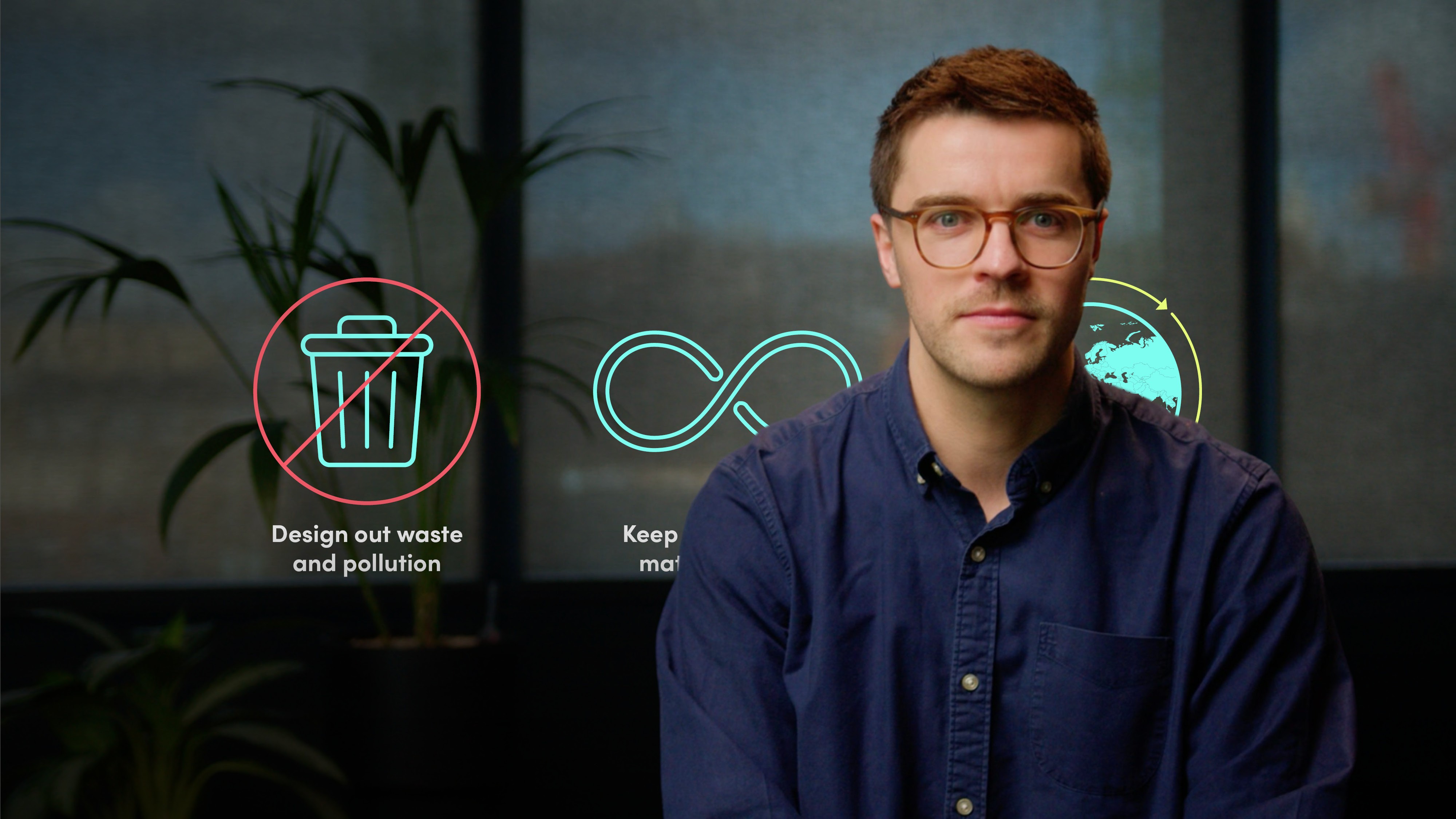
What is the Circular Economy?

Connor Hill
15 years: Circular economy strategist
In this video, Connor Hill explores the concept of the circular economy and its importance in addressing the unsustainable nature of our current linear economy.
In this video, Connor Hill explores the concept of the circular economy and its importance in addressing the unsustainable nature of our current linear economy.

What is the Circular Economy?
15 mins 28 secs
Key learning objectives:
Understand the difference between the linear economy and the circular economy
Understand the factors which have led us to adopt the circular economy
Understand the scale of resource consumption and its impact
Understand the concept of Earth Overshoot Day and its significance
Overview:
The linear economy is characterised by the one-way flow of resources in the linear model unlike the circular economy which has the aim of maximising resource use and minimising waste in the circular model. To understand why we need a circular economy, we need to explore the factors that led us to this point: the industrial revolution, population growth and the expansion of capitalism and growth economies. The scale of resource consumption by humans is also another factor and this can only be solved through adopting a circular approach.
What is the linear economy?
The linear economy is the conventional economic model and it follows a "take-make-waste" approach where resources are extracted, processed into products, used, and eventually disposed of at the end of their life cycle. This linear model results in a one-way flow of materials and energy, leading to significant waste and environmental degradation.
What is the circular economy and what are its main principles?
The circular economy aims to minimise waste and maximise resource use by keeping products and materials in circulation for as long as possible. The core principles of the circular economy involve designing out waste and pollution, keeping products and materials in use, and regenerating natural systems. By adopting closed-loop systems, where resources are recycled, reused, and regenerated, the circular economy reduces the need for extracting virgin materials and minimises the environmental impact associated with production and consumption.
What are the reasons as to why we need a circular economy?
- The Industrial Revolution
- Global population growth
- Capitalism and growth economies
How is the scale of resource use and consumption affected the earth?
Humans have adopted a model of overproduction and consumption and this threatens the inevitable collapse due to scarcity of resources.
Earth Overshoot Day is the day when humanity consumes all the biological resources that Earth regenerates in a year, occurred on July 22nd in 2022. Approximately 38% of the global land is used for farming, and out of all the mammals on Earth, 96% are livestock and humans, while only 4% are wild mammals.
Each year, approximately 100 billion tonnes of resources are extracted and used from the planet. However, only 7.2% of these materials cycle back into the global economy as secondary materials at the end of their useful life.

Connor Hill
There are no available Videos from "Connor Hill"

